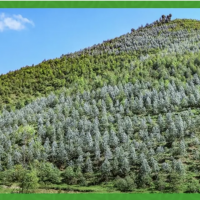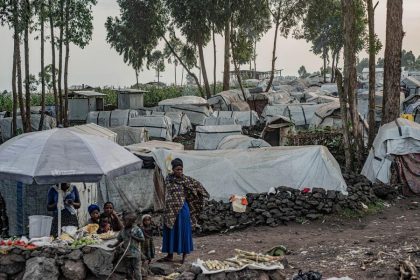If you thought vote rigging was only associated with African presidential elections where the UN always sends well-funded delegates to inspect them; think again. Right here in Geneva, Switzerland at the UN Convention on International Trade in Endangered Species of Wild Fauna and Flora (CITES), Western animal rights groups and some Western countries are buying votes against ivory trade.
Ironically, this is happening within a UN agency belonging to a family highly regarded as the champion of democracy, with vote buyers and sellers going unpunished.
In what is a clear case of catching those that steal other CITES member countries’ votes for ivory and rhino horn etc., affected countries have been told to provide evidence of countries stealing their votes. The SADC countries are worst affected by vote rigging as all Western animal rights groups and some Western countries continue to block any votes for international ivory and rhino horn trade. They do so for emotional and not scientific reasons. The issue of vote rigging is becoming increasingly topical as we head to the vote on Botswana, Namibia, South Africa, Zambia and Zimbabwe’s ivory trade proposal this Thursday.
At conference in Geneva yesterday, CITES Secretary General Ivonne Higuero was asked why the Secretariat is not investigating the ongoing Western animal rights groups influencing activities, in order to restore the integrity of the CITES voting process and the image of the organization. This comes at a time when fed up African countries could pullout of CITES in protest over a tainted voting process that robs them of their sovereign rights to trade in their wildlife products such as ivory and rhino horn.
“I have no evidence of vote-buying or anything like that happening,” said Higuero. “You (member countries that are complaining about vote-buying) have to present this evidence to the CITES Secretariat.”
She cited Resolution 17.3 (mostly ineffective, that calls for voluntary disclosure by whoever comes to attend CITES meetings and is not funded by his or her own government. However, even here at CoP18 there is evidence that delegates from ‘weak’ African governments are being sponsored in different ways by Western animal rights groups but did not declare this to the CITES Secretariat. The CITES Secretariat is also obviously aware and can’t deny that Western animal rights groups don’t only pay for a trip, food and accommodation, in order to influence a CITES outcome.
Other corrupt CITES vote-influencing activities happen well before CITES meetings. They include outright bribery; honoraria payments for lectures, Board of Director’s fees, research grants and official visits are made to bribable countries.
Higuero was quizzed further about what CITES is doing as a regulatory agency to address the ongoing and unfair shutting down of SADC countries’ ivory, rhino horn and hunting markets worldwide. She was asked how it would be possible for the CITES Secretariat to contribute towards the achievement of sustainable development goals (SDGs) by 2030 when hunting, ivory and horn trade markets for Africa were being shutdown worldwide.
In response Higuero did not explain how this was going to interfere with the attainment of SDGs. Instead, she said that shutting down domestic markets was being done by sovereign nations and CITES had no control over that.
Speaking on condition of anonymity, yesterday a Zimbabwean state veterinarian offered a solution to the elephant overpopulation challenge in SADC countries. “They should stand up to CITES CoP18 and tell the U.S., Europe and all the Western animal rights groups to come and airlift African elephants to their own countries or anywhere else they please since they [African elephants] have been devalued by the ivory trade ban and ongoing ivory markets shutdown,” he said.
The vet continued: “If they [the Western nations and their animal rights groups] don’t remove 40 000 excess elephants from Hwange National Park, for example, in the next few months, then Zimbabwe or another SADC country will be forced to do the right thing – cull the excess elephants so that other species and the remaining elephant populations survive.”
The Zimbabwean vet said that SADC countries should additionally sue the Western organizations for the costs of maintaining the excessive number of animals and for the general loss of lesser flora and fauna species.
Even African journalists following frustrating events at CITES CoP18 have objected to the way African countries continue to be denied the opportunity to trade in their wildlife products such as ivory.
Almost all SADC countries are currently elephant overpopulate. Therefore, there are no valid grounds scientific or moral that should make anyone stop these sovereign countries from exercising their rights to trade in their stockpile ivory.
“It appears African governments are blind to take on the fight with the neo-colonial interests,” said Rwandan journalist Gerald Mbada and author of a book on China-Rwanda economic cooperation. “SADC countries seem to be organized but East, West and Central Africa still are in the dark. Western conservation organizations have bribed the authorities who would be advising governments on the right and Pan-African approach. We are losing millions of dollars in unsold ivory yet we go to beg from the West funds to run our national parks. A big shame.”
A journalists from Botswana also expressed his frustration over Western animal rights groups’ unjustified opposition to the elephant over-populated SADC countries’ proposals to trade in their stockpiled tonnes of ivory. Speaking on condition of anonymity, the journalists said, “We are land owners with elephants, rhino’s and other animals, but we are failing ourselves. How can we allow a person to close down our markets inviting poverty and we just sit back and continue to be Beggars to the colonial masters? What is wrong with us?”
About the writer: Emmanuel Koro is a Johannesburg-based international award-winning environmental journalist who has written extensively on environment and development issues in Africa.
The Express News










